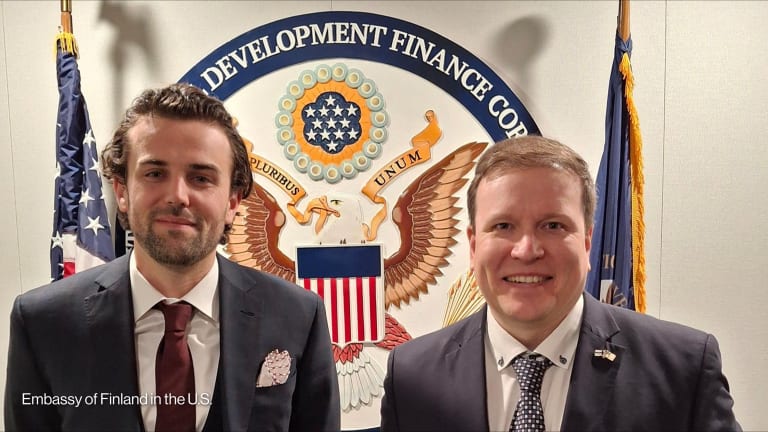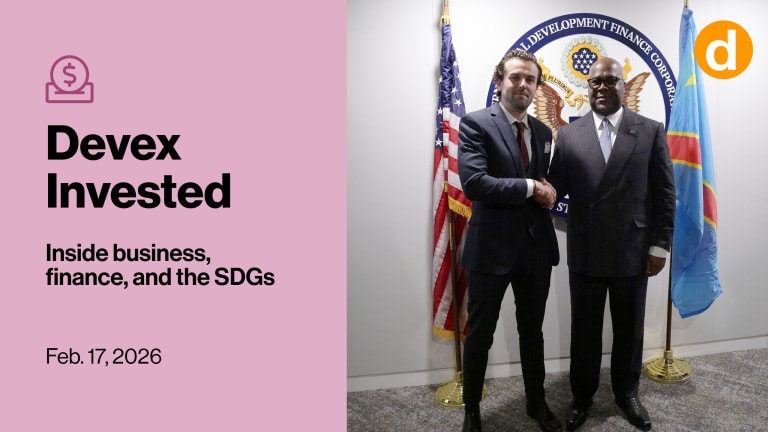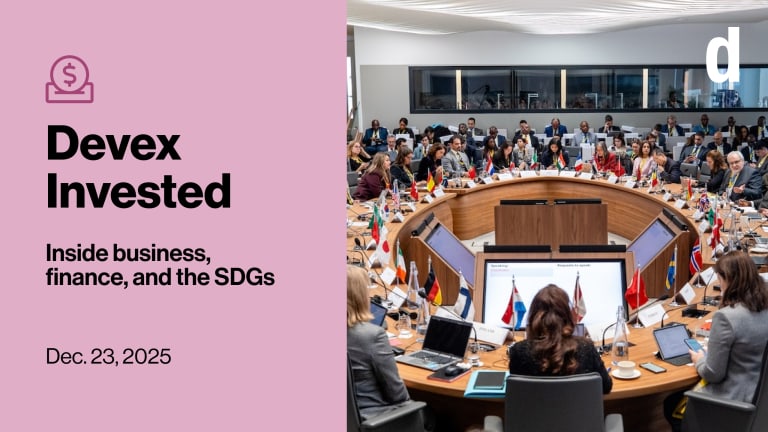DFC chief Adam Boehler says development impact will trump deal size

WASHINGTON — Among U.S. global development leaders, Adam Boehler, the first CEO of the U.S. International Development Finance Corp., is in a unique position — the Trump administration wants to give his agency more money, not less.
As the new DFC ramps up its operations, Boehler is working to meet the expectations of U.S. lawmakers, White House officials, and development advocates who pushed for the creation of a stronger development finance institution. He is also reassuring his peer agencies and partners that he wants development impact to be front and center when his team decides where to direct their new supply of resources and investment tools.
“I want to be clear — when we evaluate, I don’t care about the amount of money we’re investing. I care about the impact … Sometimes with $500,000 you’re going to have a much bigger impact than $500 million,” Boehler said in an interview with Devex President and Editor-in-Chief Raj Kumar on Thursday.
To make that determination, DFC will look to its new “impact quotient,” a metric aimed at measuring development impact. Boehler has placed the agency’s new chief development officer — former Power Africa coordinator Andrew Herscowitz — in charge of finalizing that impact evaluation metric.
“It’s the first thing we look at … I required right away — every single deal, I want to know, what is the impact quotient? I want to know, how does this fit in with foreign policy? How are we working with our partners — USAID, State, MCC, EXIM — how are we plugging them in? And then finally ... is it a sustainable deal?” Boehler said.
Those three elements — development impact, foreign policy contribution, and return on investment — all factor into the DFC’s mandate, but Boehler reiterated that development should lead the way.
“The risk you have when you have $60 billion is you could say, ‘let’s just do what’s easy to put it out,” Boehler said, adding that governments tend to favor big infrastructure projects because they are good for public relations.
“A multibillion-dollar deal — it’s easy. It can check the box on return. But that may not be the way to look at development impact,” he said.
Boehler, who was roommates for a summer with President Donald Trump’s son-in-law and senior adviser Jared Kushner, comes from a venture capital background. He founded a for-profit medical care provider, before transitioning into government service.
Along with the funding boost, DFC has also taken on capabilities that its predecessor agency, the Overseas Private Investment Corp., lacked. Among them is the ability to make equity investments, in addition to providing debt financing. Boehler said that development impact will guide those investment decisions, too, and he noted that DFC has an opportunity to return to businesses OPIC has already loaned to, and to consider whether taking equity in them might make sense.
“There’s a bunch of companies that we’ve made loans to that we know really well, where we would have the ability to increase our impact on the equity side too,” Boehler said.
He said he has told his team, “if we’ve missed out or there is an opportunity through equity investment on these deals to increase development impact, bring them.”
As DFC looks to bring more investment power to bear in low- and middle-income countries, Boehler is clear that is in part a response to concerns America is ceding ground to its economic rivals, particularly China.
“There is significant opportunity to serve as an alternative [to] the autocratic side, while significantly driving development,” Boehler said. His recent experiences in Africa have convinced him that countries accept investment from America’s rivals because “we just weren’t there as an alternative.”
“I don’t view that it’s our job to go around, look at what China’s doing, and just try to block it,” he said, adding that instead, U.S. investors should “play to our strengths.”
That means respecting the rule of law, competitive markets, protecting the environment, and building human capital, he said. In some cases, the U.S. government might not be able to compete on an even playing field.
“We’re not going to bring a briefcase full of cash over there, and if that means we lose some deals, we lose some deals,” he said.
Search for articles
Most Read
- 1
- 2
- 3
- 4
- 5








